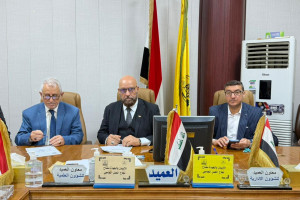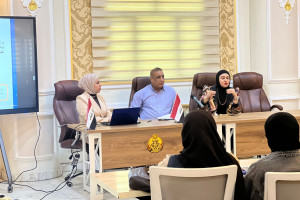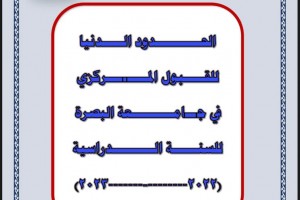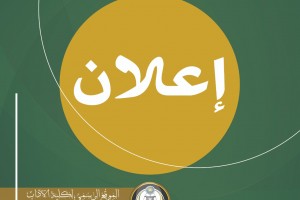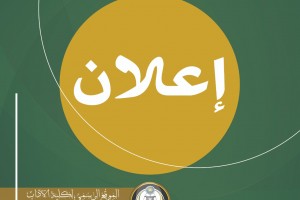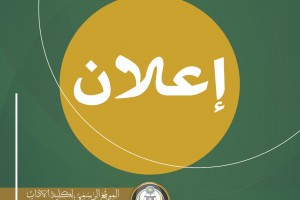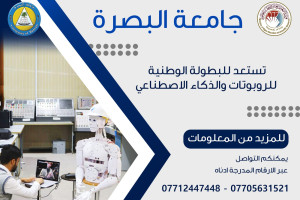
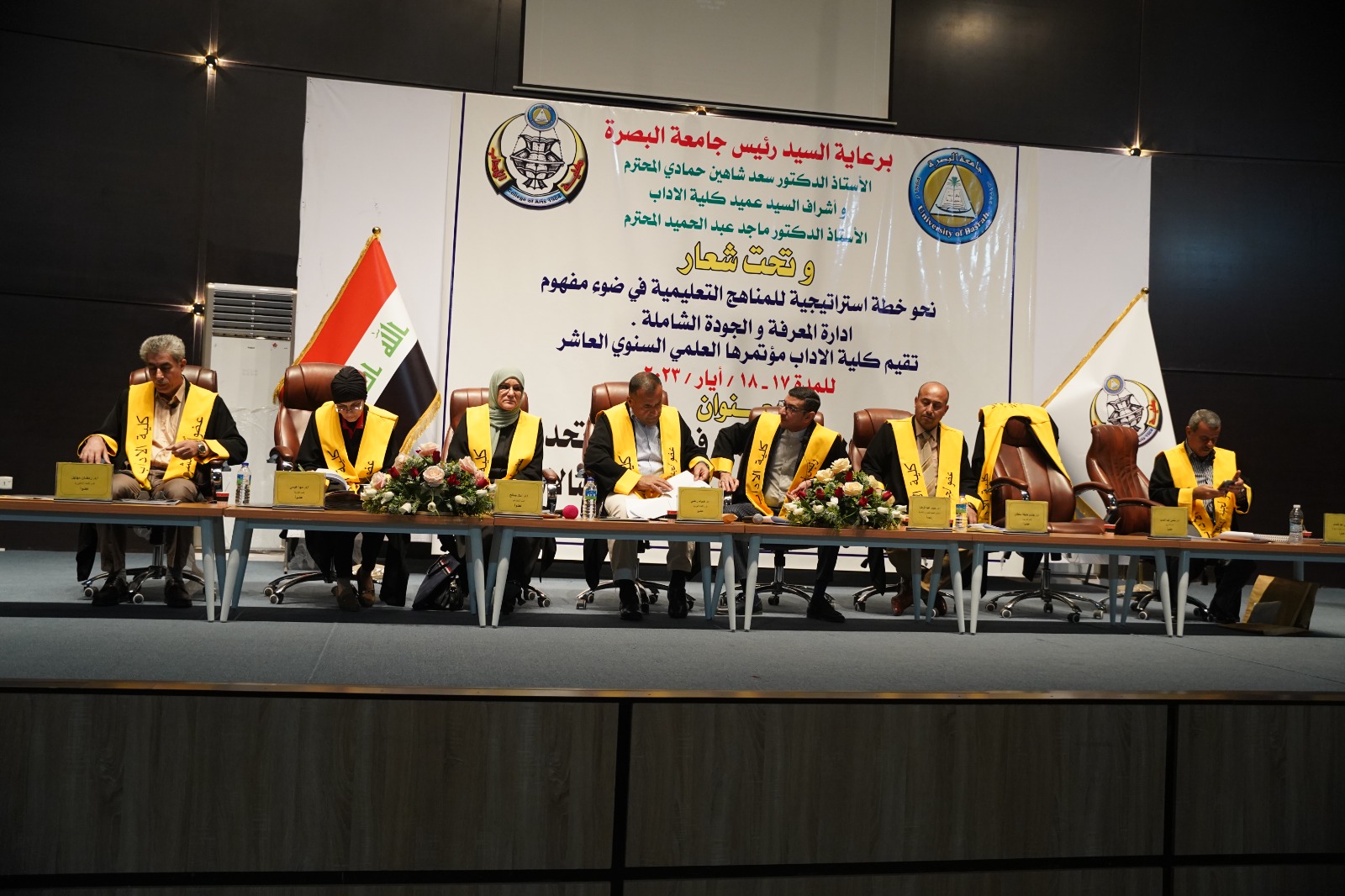
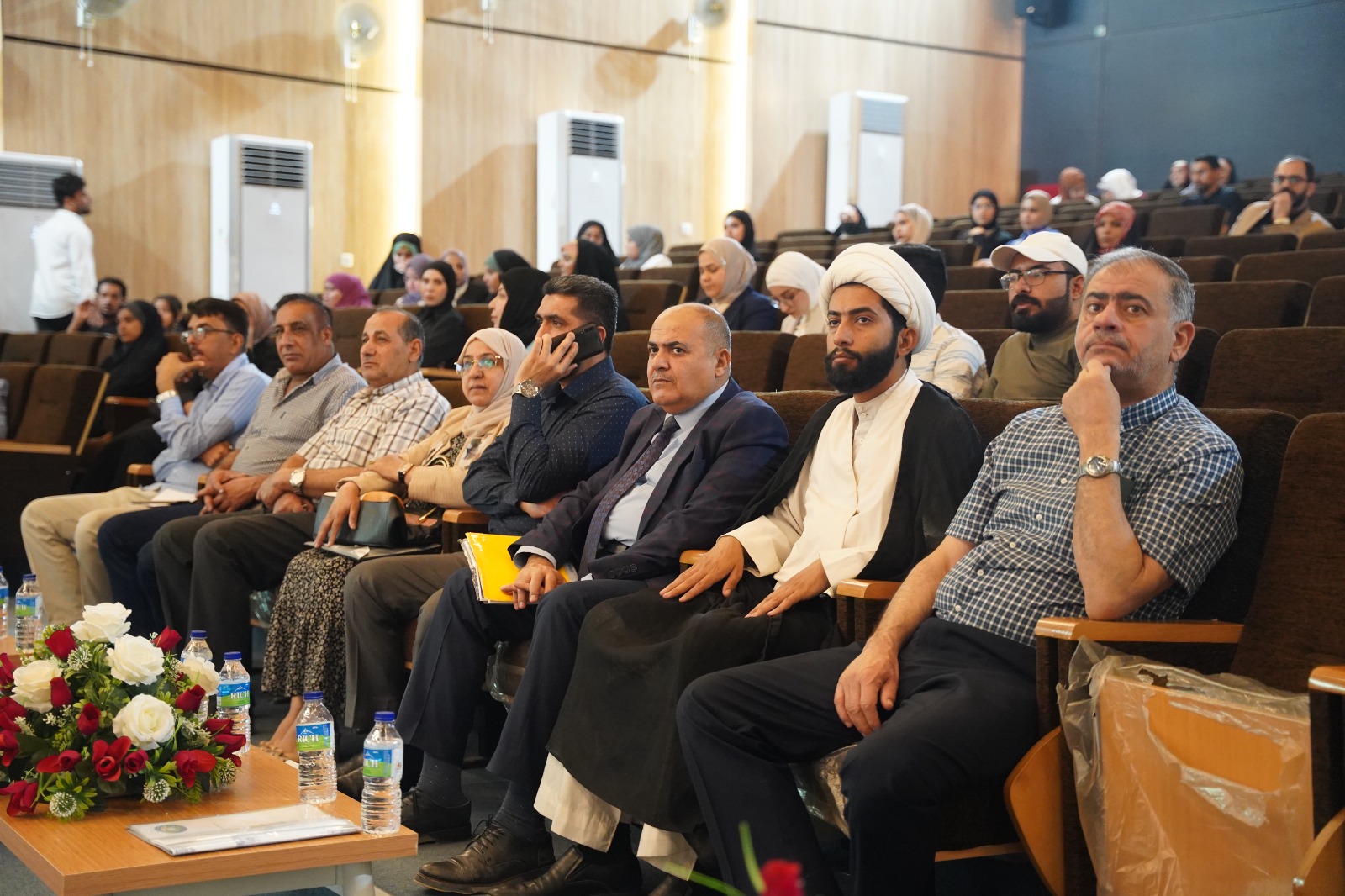
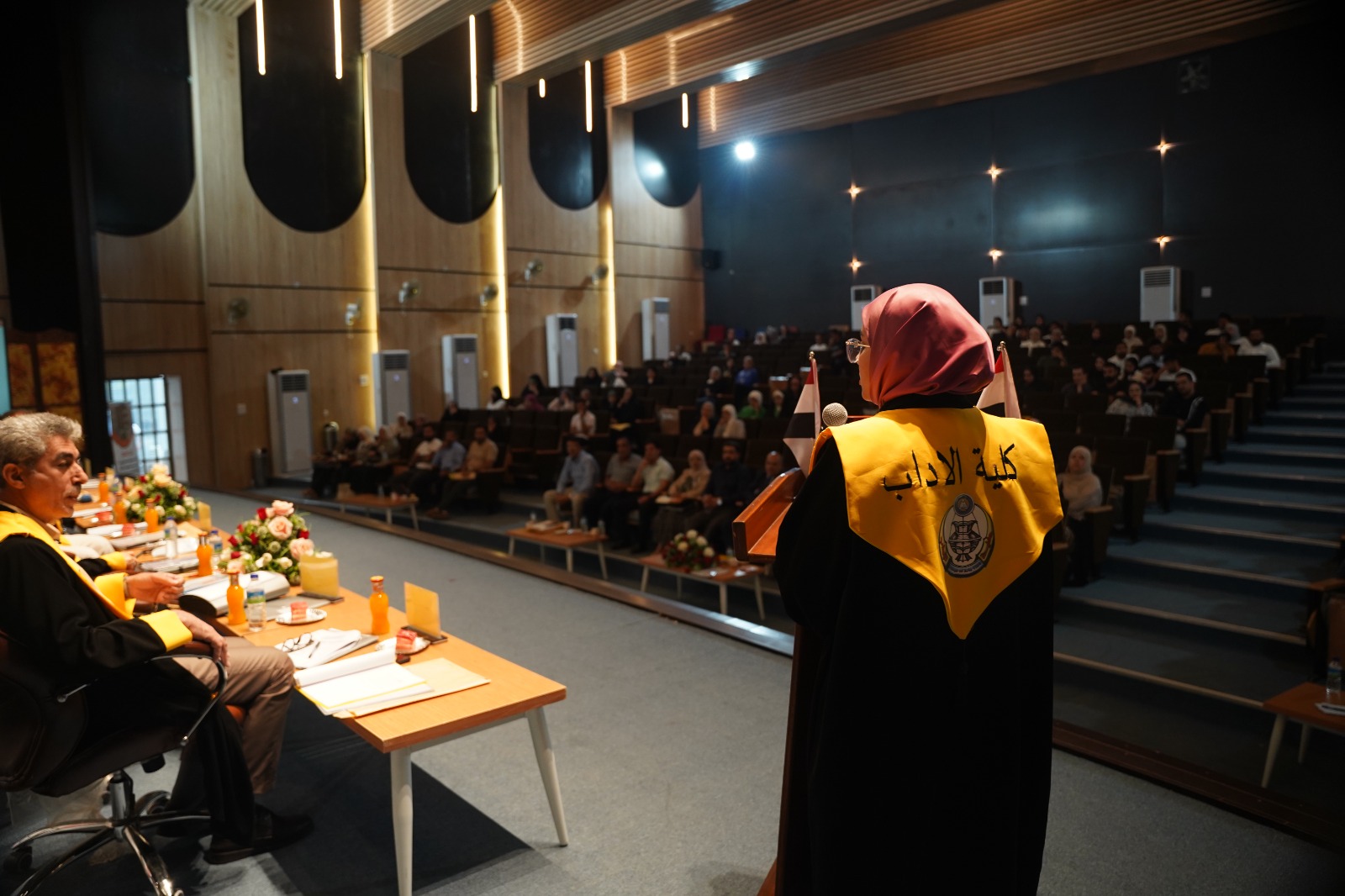
Under the chairmanship of Prof. Dr. Majid Abdul Hamid Al Kaabi, Dean of the College of Arts, and under the supervision of Prof. Dr. Haider Abdul Redha Al Tamimi, Assistant Dean for Scientific Affairs and Postgraduate Studies, and in the presence of the members of the College Council and the teaching staff, the college of Arts held its annual scientific conference for the graduation research of fourth-stage students for the academic year 2022-2023 entitled (Graduation research projects are a source of information)
The special committee discussed the research nominated by the scientific committees in the departments of Arabic, English, history, geography, information, philosophy and translation according to the scientific research methodology and the scientific methodology specific to each department, on the basis of which those researches were evaluated and which can be benefited from by students after their development and modification in the studies. The number of participating researches has reached (22), of which four are for information and history, five are for philosophy, three are for English and geography, two are for Arabic and one is for translation.
The committee concluded with the following recommendations:
1- The need to teach the subject of the scientific research method in all levels of university studies.
2- Practical training of students on how to use traditional and electronic sources of information.
3- Teaching students the methods used in referring and citing scientific research.
4- Practical training of students on how to write a research, starting from the initial report and ending with an integrated scientific research.
5- Determining the subjects of the students should be from the third stage.
6- Distribution of supervisors to students takes place at the end of the second semester of the third stage.
7- Motivating students to attend scientific discussions in the college for postgraduate students.
8- Creating a spirit of scientific competition among students in scientific research by conducting discussions with them.
9- Carrying out field visits to libraries and information centers to teach students how to use the library and its sources of information.

